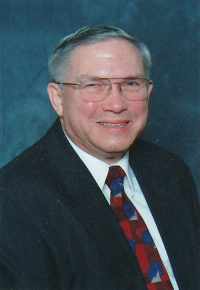Written by Joshua Stancil
For this week’s Mission Minute, we’re delighted to have with us Larry Lutz, a chaplain with the Ohio State Department of Rehabilitation and Corrections.
Larry, it’s so wonderful to meet you. How exactly did you get started in prison ministry?
I worked in juvenile corrections from 1979 to 1984, first as an officer, then as a teacher and counselor. I always wanted to return to working with the incarcerated; it was work that I enjoyed, and it was more fulfilling than any other work I had done. For several years before I retired, I had a goal of returning to serving the incarcerated. Then one Sunday there was a notice in our parish bulletin asking for prison ministry volunteers. I responded, and in July 2016 began working as a chaplain at the Ohio State Penitentiary, through a contract the Diocese of Youngstown has with the Ohio State Department of Rehabilitation and Corrections.
Has your work in prison ministry changed you in any way?
I have increased in the knowledge of my faith. For most of the four years I have been at the prison, I have been teaching seven classes each week. Two of the classes are RCIA, one is ecumenical, and the remaining four are faith enrichment. Teaching a subject can help one learn it, so my teaching work has greatly helped me to learn my faith better and deepen my prayer life.
Do you have any heroes in prison ministry, anyone who has inspired or mentored you?
Fr. Ed Noga is the chaplain for our team, and has given very good suggestions and excellent support for our work. He has been a great help to me.
What would you say to those who are cynical about your work? For example, those who would say something like, “Inmates’ll never change.”
I would challenge them to examine their perception of this population. The crime that the incarcerated are doing time for should not be used to define who they are. They are normal people who have made bad decisions. There are usually reasons for those decisions, but reasons that were not well thought out. Our work is to help them see different options and get into the habit of looking for those options when meeting the challenges of life. It is very encouraging in getting to know these guys and being open to seeing the changes that come about in them. If the cynical person is Catholic, I can suggest to them to consider giving the Holy Spirit a chance to do its work.
In your view, Larry, what is the most important aspect of prison ministry?
A prison minister’s spirituality. A prison minister needs to have a good, solid prayer life. There must be a desire to be an instrument of God’s work. The prison minister must give up what his or her desire is and ask God to help accomplish the work God wants, the way God wants. The minister needs to approach the incarcerated with the perspective of being accepting and non-judgmental, and has to see them as brothers and sisters in Christ. We are all children of God.
What do inmates most benefit from in their interactions with volunteers?
Most often, inmates state that the benefit they most appreciate is that the volunteer cares about them. Many inmates admit that they seldom have had anyone who cares about them. There are national statistics that reveal significantly lower rate of recidivism for inmates who have had interactions with prison ministers.
Has Dismas Ministry helped you in your work?
When I started this ministry, I did not know what exactly to do. I work best when I have a structure or a guide to follow. When I came across Dismas Ministry’s materials and started using them, I felt much more confident in what I was doing, and the inmates became more motivated. Most inmates do not stay that long in our prison; it’s a supermax setting. They are housed one inmate to a room and get out for one hour a day for recreation, which is usually taken alone. The residents are very receptive to Dismas Ministry’s “Pray Always” series. I challenge them with an idea: that they are in for a long retreat. Many people outside of prison go for a day of recollection, or maybe a weekend-long or week-long retreat; but the residents I minster to have the opportunity to make a much longer retreat. If they get into to the habit of praying, it will pay many dividends for the rest of their lives.
 Joshua Stancil is a Dismas Ministry board member, a published author, and a native of North Carolina. A frequent speaker at restorative justice conferences in both America and abroad, his writing has appeared in Magnificat, Traces, and Convivium. He can be reached via joshua.stancil@drm.media.
Joshua Stancil is a Dismas Ministry board member, a published author, and a native of North Carolina. A frequent speaker at restorative justice conferences in both America and abroad, his writing has appeared in Magnificat, Traces, and Convivium. He can be reached via joshua.stancil@drm.media.



